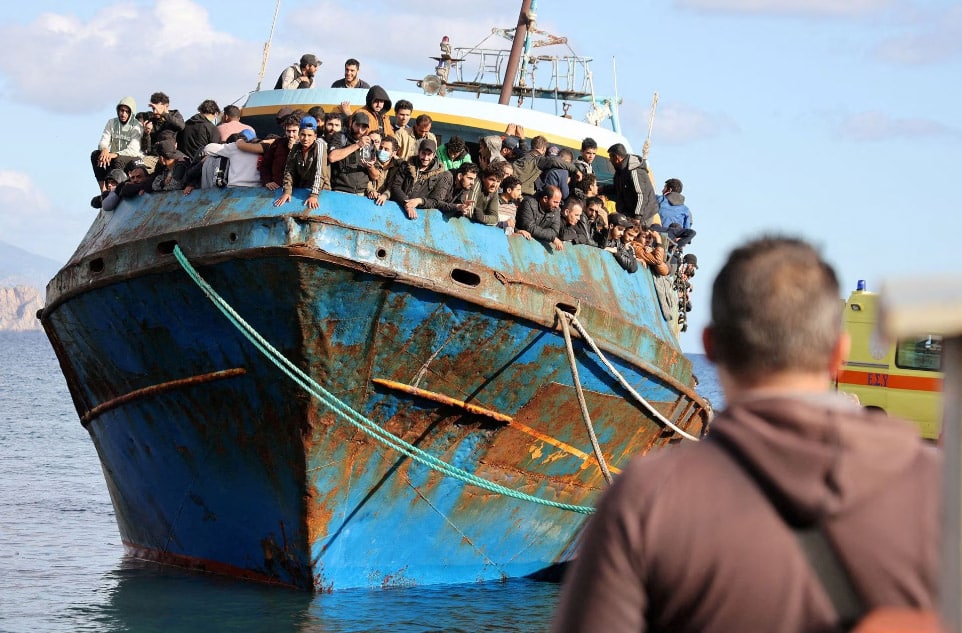European Union ministers on Thursday sought ways to curb irregular immigration and send more people away as arrivals rose from pandemic lows, reviving controversial ideas for border fences and asylum centres outside of Europe.
EU border agency Frontex reported some 330,000 unauthorised arrivals last year, the highest since 2016, with a sharp increase on the Western Balkans route.
“We have a huge increase of irregular arrivals of migrants,” Home Affairs Commissioner Ylva Johansson told talks among the 27 EU migration ministers. “We have a very low return rate and I can see we can make significant progress here.”
Denmark, the Netherlands and Latvia were among those to call for more pressure through visas and development aid towards the roughly 20 countries – including Iraq and Senegal – that the EU deems fail to cooperate on taking back their nationals who have no right to stay in Europe.
Only about a fifth of such people are sent back, with insufficient resources and coordination on the EU side being another hurdle, according to the bloc’s executive.
The ministerial talks come ahead of a Feb. 9-10 summit of EU leaders who will also seek more returns, according to their draft joint decision seen by Reuters.
“The overall economic malaise makes countries like Tunisia change from a transit country to a country where locals also want to go,” said an EU official. “That changes things. But it’s still very manageable, especially if the EU acts together.”
‘WALLS AND FENCES’
That, however, is easier said than done in the bloc, where immigration is a highly sensitive political issue and member countries are bitterly divided over how to share the task of caring for those who arrive in Europe.
The issue has become toxic since more than a million people crossed the Mediterranean in 2015 in chaotic and deadly scenes that caught the bloc off guard and fanned anti-immigration sentiment.
The EU has since tightened its external borders and asylum laws. With people on the move again following the COVID pandemic, the debate is returning to the fore, as are some proposals previously dismissed as inadmissible.
Denmark has held talks with Rwanda on handling asylum applicants in East Africa, while others called for EU funds for a border fence between Bulgaria and Turkey – both ideas so far seen as taboo.
“We are still working to make that happen, preferably with other European countries but, as a last resort, we’ll do it only in cooperation between Denmark and, for example Rwanda,” Immigration Minister Kaare Dybvad said on Thursday.
Dutch minister Eric van der Burg said he was open to EU financing for border barriers.
“EU member states continue making access to international protection as difficult as possible,” the Danish Refugee Council, an NGO, said in a report on Thursday about what it said were systemic pushbacks of people at the bloc’s external borders, a violation of their right to claim asylum.
While EU countries protest against irregular immigration, often comprising Muslims from the Middle East and North Africa, Germany is simultaneously seeking to open its job market to much-needed workers from outside the bloc.
“We want to conclude migration agreements with countries, particularly with North African countries, that would allow a legal route to Germany but would also include functioning returns,” Interior Minister Nancy Faeser said in Stockholm.







Click here to change your cookie preferences